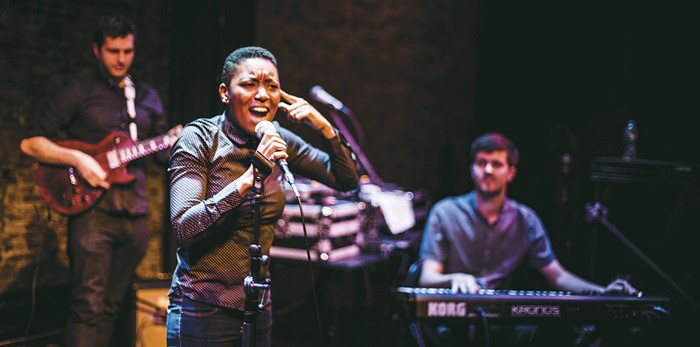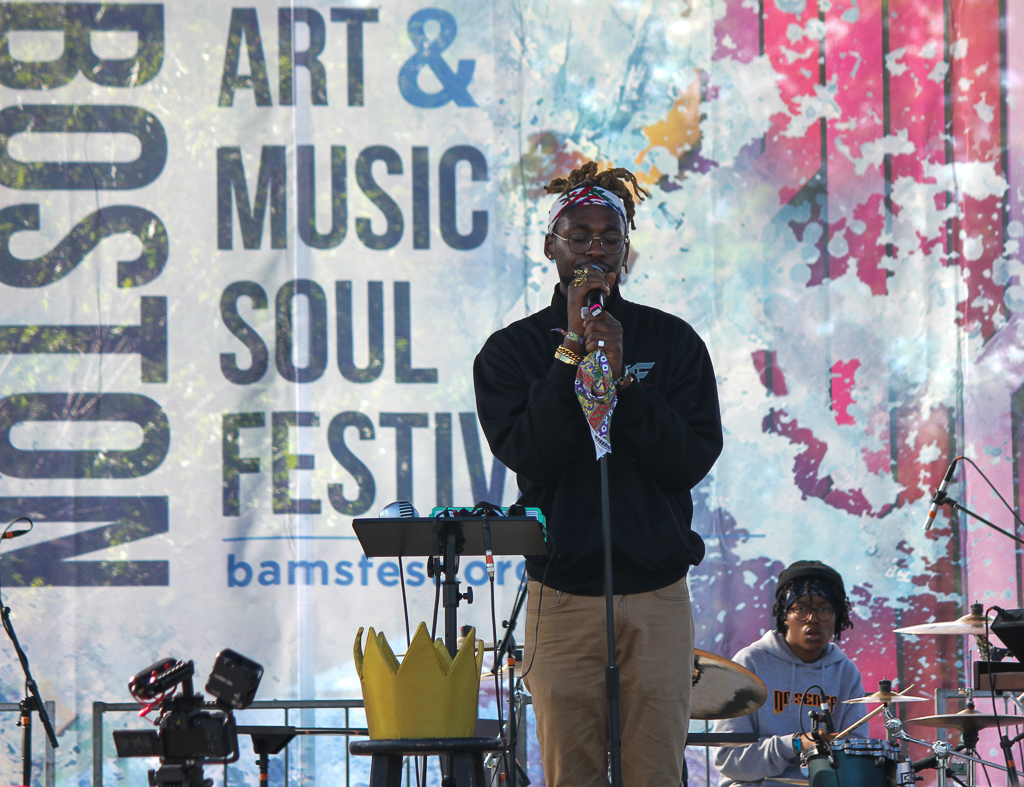To Achieve Racial Equity, We Need the Arts
The arts have a unique ability to connect communities and inspire change, making investment in the field a critical component of work for social justice.
July 31, 2020
By Eva Rosenberg, Interim Director, Arts & Culture
In Antoinette Nwandu’s play Pass Over, co-produced in Boston earlier this year by Front Porch Arts Collective and SpeakEasy Stage Company, two Black men just passing time encounter harassment and brutality at the hands of a white police officer. The production was disturbing and deeply affecting, and at the end of the evening, while others stayed for a post-show conversation, I did what director Monica White Ndounou and the artistic team asked me to do: I left.
Pass Over’s rich character development gave me, a white woman, much to consider and grapple with. More importantly, however, the theatrical experience wasn’t about me. The Black theater company Front Porch, led by Executive Director Maurice Parent and Artistic Director Dawn Simmons, produced a play about, by, and for the Black community. Rather than the usual talkback, the after-show healing ceremony was a space for Black and brown people to grieve and heal together, given their personal connection to the racist violence depicted in the play.
The essential work these organizations are doing is not only about trauma and grief. Visionary Catherine T. Morris founded BAMS Fest, a nonprofit organization that works to break down racial and social barriers to arts and culture throughout Greater Boston. Their signature program, BAMS Festival, is an annual, free summer event in Franklin Park that celebrates Afro-centric identity and the Black experience. Like all other large-scale public events in Boston this summer, this year’s iteration has been canceled. But we desperately need BAMS Festival to return to when it is safe to do so. In a world where a Black man cannot safely birdwatch in Central Park, thousands of Black and brown (and white) people gathering joyfully in public space to celebrate Black artistry is a revolutionary act.
In Boston’s arts sector, large, predominantly white arts institutions have historically received a disproportionate amount of funding from an overwhelmingly white philanthropic community. These institutions have also come to symbolize the city’s cultural offerings to the world at large. But the urgency to support arts organizations founded, led by, and serving people of color at this moment is not solely about addressing past wrongs or sparking a much-needed change to Boston’s image. It’s about the pivotal role that the arts can and should play in advancing the conversation. If racial equity is our goal, funding arts organizations like Front Porch and BAMS Fest must be part of our plan.
Given the power of artists and the arts to connect communities, interpret our surroundings, and imagine more just futures, investing in BIPOC (Black, Indigenous, and people of color) arts organizations is a critical component of any comprehensive strategy for social change. The overdue progress our white-led major cultural institutions are making to become more inclusive and relevant is necessary, but not sufficient. We also need to foster the development of new artistic institutions that center the voices and experiences of people of color, on stage and in the audience. With Black and brown executives courageously demanding needed resources for their communities, meaningful change in our philanthropic ecosystem is happening at an accelerated pace. I look forward to supporting the work of these powerful leaders of color, and strongly encourage them to prioritize the arts as they set agendas for the new racial equity funds.
Absent the kind of unrestricted, long-term financial support that initiatives like these funds could provide, leaders like Maurice, Dawn, and Catherine may conclude that their organizations cannot weather the dual crises of the pandemic and systemic racism that are so profoundly affecting the arts and culture sector. That is not a risk we can afford to take: Boston desperately needs their creative leadership as we grapple with the internalized racism that shapes every aspect of our communities. To help reimagine and move towards a more just Boston, I urge those committing money and other resources to racial equity to join us in investing in arts leaders and organizations of color whose work will show us the way.


